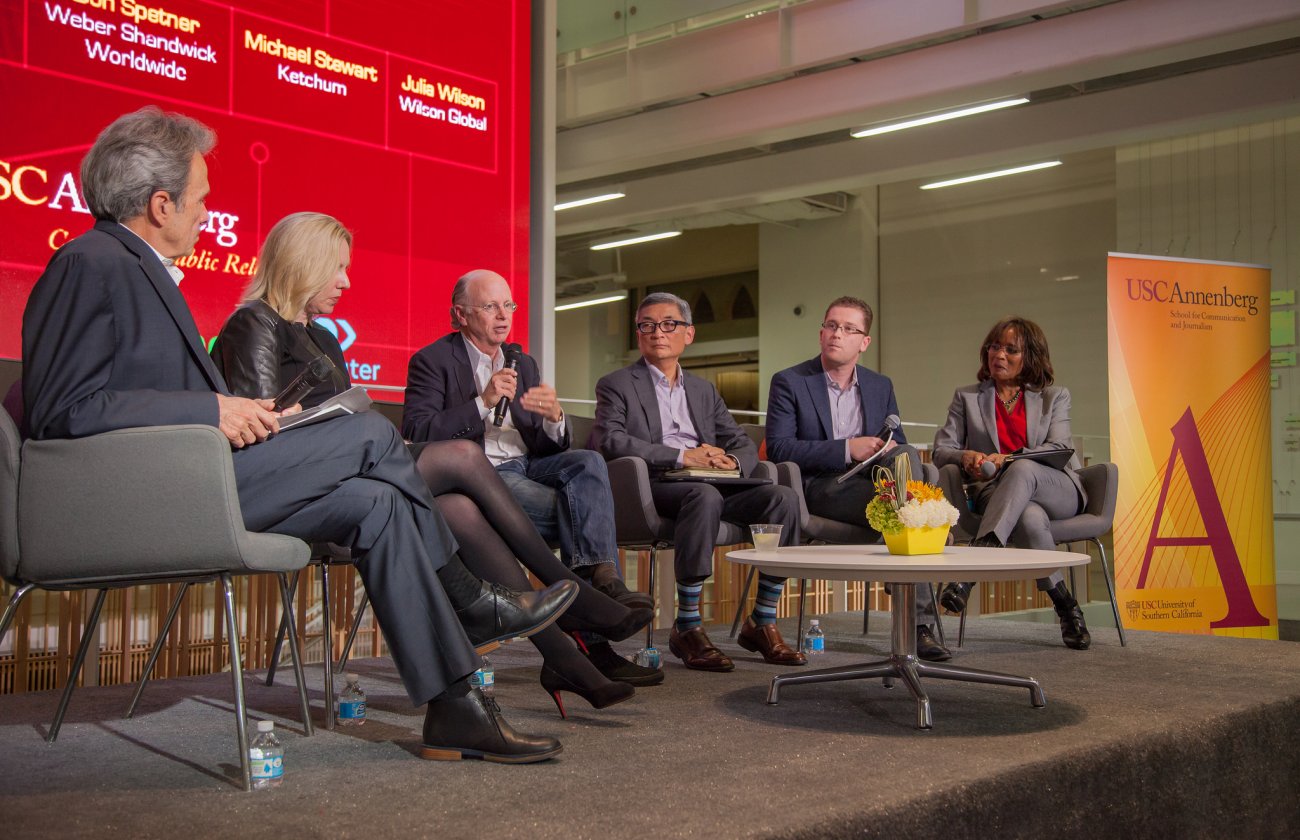By Michael Juliani
Although China’s economic influence on the world continues to grow, its cultural significance remains trapped within governmental need for control. Racy entertainment options are quickly labeled as Western-influenced obscenity. Propaganda departments have watchdogged the process of Chinese journalists to the point that they self-censor their own reports.
Meanwhile, cultures with access to more liberated media perspectives all over the world have heard of China’s alleged human rights violations. Consequently, these audiences are slow to respect China’s top news network as it attempts to branch out.
The U.S.-China Institute, a program of USC Annenberg, hosted Ying Zhu, an expert on Chinese film and television, for its event “Two Billion Eyes” at Leavey Library Thursday night. Introduced by the Institute’s Executive Director Clayton Dube, Zhu lectured on the history and significance of China Central Television (CCTV)’s relationship with the Chinese government and culture.
Zhu, a professor at the City University of New York, discussed how the Chinese government has enforced rules on county networks to ensure CCTV’s monopoly. CCTV gets exclusives from the Chinese government that aren’t allowed to other media outlets, and the smaller outlets are required to re-broadcast CCTV’s material for most of their episodes. CCTV also retains sole rights to air international sports events like the Olympics, which bring enormous revenue.
CCTV is not public television: it’s independently funded and for-profit, but remains controlled by partisan propaganda interests. This distinction is unique from western media models like the publicly funded British media groups and the independent outlets in the United States.
Zhu defined the Chinese media model as state capitalism where market economy meets strict state control. She said that the Chinese media’s purpose is to push moral values to its audience rather than push boundaries of subversion and free expression.
In an attempt to expand its sophistication, prestige and market revenue, the network has tried to establish itself with international audiences. Though the model of monopoly and partisanship works for Chinese audiences because of societal constructs, CCTV has struggled to become a viable source internationally.
Zhu said that this international push represents China’s wish to bring its culture closer in contact with the United States. The two nations are already deeply entrenched in business matters but have been at odds over societal issues of human rights and global dominance.
It might take another disaster like China’s massive 2008 earthquake to bring prominence to the CCTV, which in recent years has tried to expand to a global audience, according to Zhu’s presentation. Coverage of that quake offered the Chinese media a brief window of freedom from propaganda restrictions as the Chinese government forgot to issue orders for a few hours after the quake hit.
After Zhu finished her lecture, Dube discussed the history of several news outlets that benefitted from specific events: CNN became prominent during the first Gulf War; Al Jazeera was the go-to source for news from the Arab Spring. “China has plenty of stories the world wants to hear,” Dube said.
The event drew a large crowd, filling the auditorium of Leavey Library, with several audience members asking engaging questions following the presentation. The U.S.-China Institute has drawn much interest at recent events, including the second Journalism Forum hosted by Annenberg on Tuesday afternoons at noon.
The Institute has an upcoming event on Sept. 12 that will discuss the U.S.’s large exportation of trash to China.
Related:









